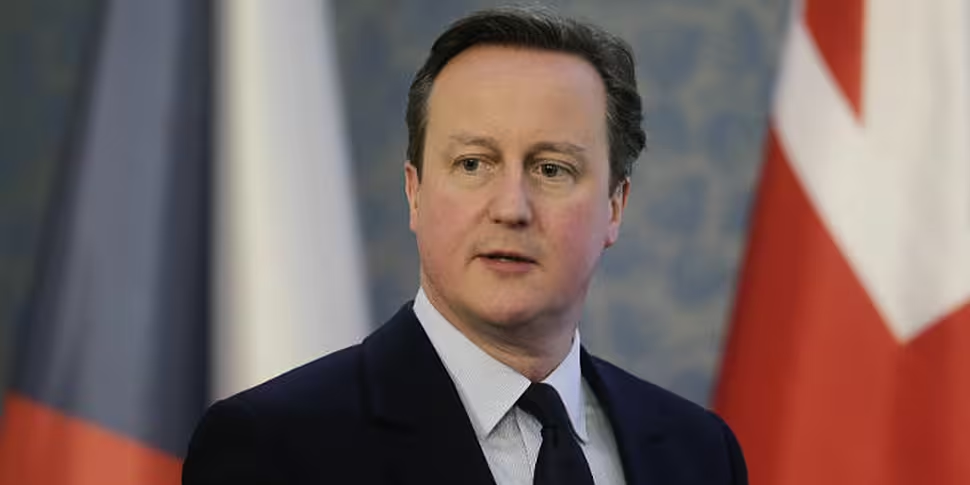David Cameron says an 'emergency brake' clause allowing countries with under pressure public services to close their borders to migrants is being discussed at EU level.
Speaking at a news conference in Prague, the PM said it was one of a number of alternatives EU leaders have suggested instead of his proposed four-year ban on in-work benefits for migrants.
Mr Cameron was speaking in the Czech capital after meeting the prime minister Bohuslav Sobotka to discuss the changes he wants to make to the EU ahead of a referendum on the UK's EU membership.
Mr Bohuslav said: "The UK has introduced the proposal requiring people to stay in the UK for at least four years in order to become eligible for social welfare benefits.
"We discussed other alternatives to reach the same objective - to make it possible for the UK government to respond to the mass influx of workers to the UK.
"One of those alternatives is one that I believe can be discussed further and the option involves giving a member state the possibility of an emergency brake if there is enormous pressure on its social welfare system."
Mr Cameron then added: "As the Prime Minister said, there are a number of options that people - different countries, the European Commission, the European Council - are putting forward, which I think is very welcome.
"I've said all along, my four-year proposal remains on the table, but if people can find other ways of achieving a similarly powerful effect to address the problem ... that the British have, then I've very happy for those options to be discussed."
Details of how the 'emergency brake' would operate have not been released but it is understood to be a method allowing an EU country to apply to Brussels to close its borders to EU economic migrants for a limited period of time.
In order for the country to qualify, it would have to demonstrate its welfare system and public services were being placed under considerable strain.
Mr Cameron's meeting with Mr Bohuslav was the latest in a series of trips to European nations in order to win support for the four changes he wants to make.
Hundreds of diplomats from the EU institutions and the 28 member states have been involved in the renegotiations, while the Prime Minister has been criss-crossing the continent to convince other leaders of his plans.
David Cameron wants the UK to opt out of "ever closer union"', restrict access to in-work benefits for recently arrived EU migrants, ensure those countries not in the Eurozone are treated equally and improve competitiveness by slashing red tape.
While outlining his plans to business leaders at the World Economic Forum in Davos - and asking for their support - he told a French broadcaster those four broad areas were "not unreasonable".
Mr Cameron's office is reported to be increasingly confident that a deal will be struck before the EU Council on the 18 and 19 February, which would allow him to call a referendum in the summer.
The law stipulates a 16-week campaigning period, during which cabinet ministers will be allowed to break ranks and argue to leave if they feel the negotiated settlement is unsatisfactory.









